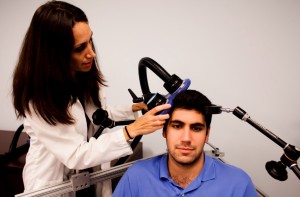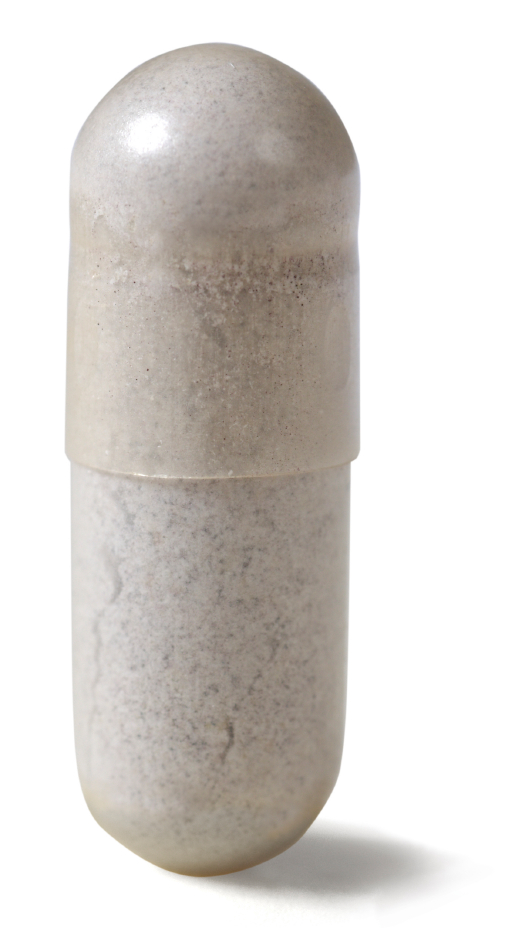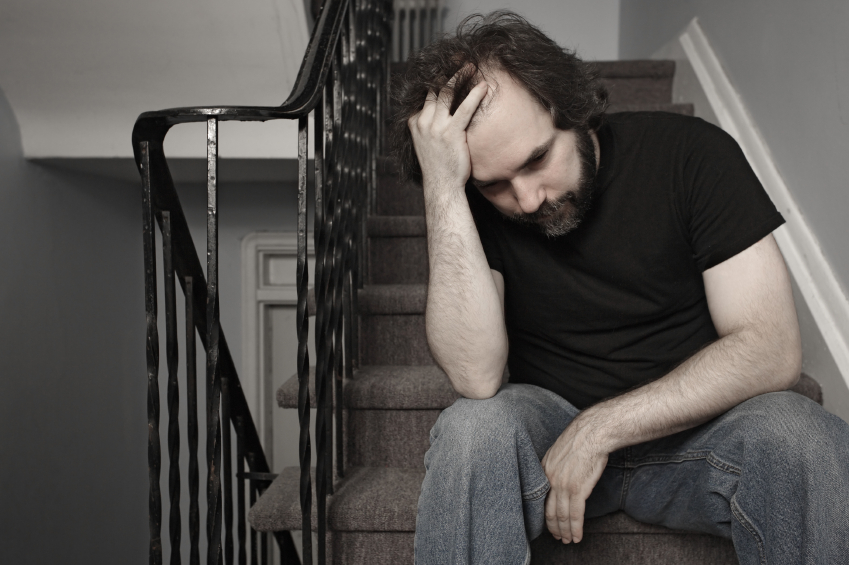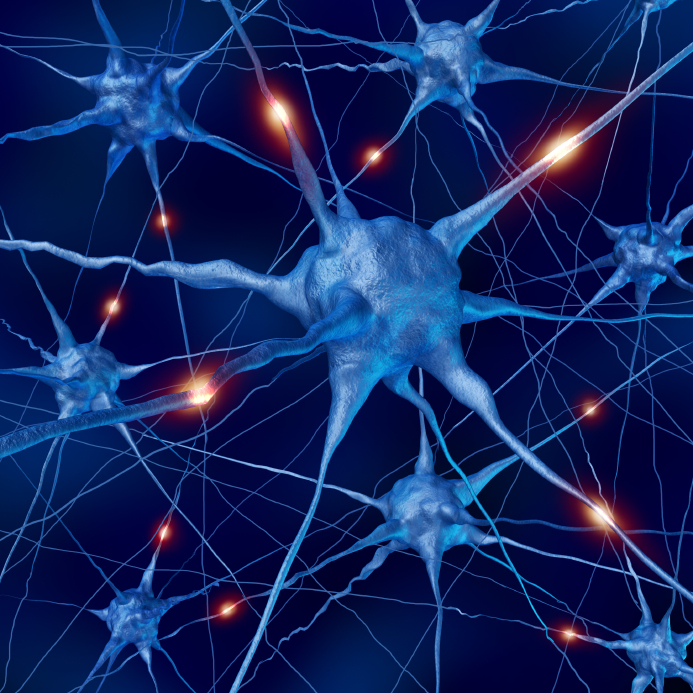Transcranial Magnetic Stimulation Continues To Show Effectiveness In Depression
 At the 2014 meeting of the Society of Biological Psychiatry, David G. Brock et al. reported that 41 of 67 depressed patients achieved remission (61.2%) after acute treatment with Transcranial Magnetic Stimulation without other medication. After three months of continuation treatment in which patients either received one maintenance TMS session per month or were simply observed, 10 of the 16 receiving active TMS continuation (62.5%) did not relapse, while 7 of the 16 who were only observed (43.8%) did not relapse. While this was not a statistically significant difference, it suggests that continuation TMS should be studied further.
At the 2014 meeting of the Society of Biological Psychiatry, David G. Brock et al. reported that 41 of 67 depressed patients achieved remission (61.2%) after acute treatment with Transcranial Magnetic Stimulation without other medication. After three months of continuation treatment in which patients either received one maintenance TMS session per month or were simply observed, 10 of the 16 receiving active TMS continuation (62.5%) did not relapse, while 7 of the 16 who were only observed (43.8%) did not relapse. While this was not a statistically significant difference, it suggests that continuation TMS should be studied further.
Andrew Leuchter et al. reported that synchronized transcranial magnetic stimulation (sTMS) at a patient’s individual alpha frequency (IAF) was more effective than sham treatment in those with prior treatment resistance (34.2% vs 8.3%) but not different from sham treatment in depressed patients who had never received treatment.
Editor’s Note: This would be important if replicated, as patients with high levels of treatment resistance do not tend to respond well to regular rTMS given at 10Hz and not matched to a patient’s alpha frequency.
RTMS Reduced Smoking
Dinur-Klein Limor reported that 10 Hz (but not 1 Hz) repetitive transcranial magnetic stimulation (rTMS) over the left pre-frontal cortex decreased cigarette consumption when given in combination with a smoking cue.
Lithium Superior to Valproate at Preventing Manias and Depressions
 In a special symposium on bipolar disorder at the 2014 meeting of the American Psychiatric Association, researcher Mike Bauer reviewed a new meta-analysis that showed lithium not only has significant effects in preventing manias, but also depressions. Researcher Geddes et al. had, in a previous study called BALANCE, found that lithium was superior to valproate (Depakote). Together these findings led Bauer to the conclusion that lithium is under-used in the treatment of bipolar disorder, especially in the US, where lithium is prescribed less often than valproate.
In a special symposium on bipolar disorder at the 2014 meeting of the American Psychiatric Association, researcher Mike Bauer reviewed a new meta-analysis that showed lithium not only has significant effects in preventing manias, but also depressions. Researcher Geddes et al. had, in a previous study called BALANCE, found that lithium was superior to valproate (Depakote). Together these findings led Bauer to the conclusion that lithium is under-used in the treatment of bipolar disorder, especially in the US, where lithium is prescribed less often than valproate.
An article by researcher Kessing in the British Journal of Psychiatry in 2012 relied on naturalistic follow up data and also showed that lithium was superior to valproate in preventing hospitalizations.
A study by researcher Willem Nolen indicated that in mono-therapy, levels of lithium in the blood needed to be 0.6 meq/L or higher in order for lithium to work better than placebo. Lithium augmentation that produced lower blood levels of 0.3 meq/L was not significant on its main outcome measure of preventing new episodes. However, compared to treatment as usual, those randomized to lithium used lower doses of atypical antipsychotics, and other data indicated that these patients had fewer suicide attempts and increased hippocampal volume.
Bauer noted that lithium-related goiter and low thyroid are easily treated, and that kidney damage while taking lithium can be prevented by avoiding episodes of lithium intoxication. It is easy to conclude that lithium should be used more often, especially given its positive effects against suicide and brain gray matter and hippocampal volume loss.
Antidepressant Vilazodone Superior to Placebo, Plus No Sexual Side Effects
Vilazodone (Viibryd) was approved by the Federal Drug Administration (FDA) as an antidepressant in 2011. The drug is a serotonin 5-HT reuptake inhibitor and a partial agonist of the serotonin 5-HT1A receptor like the anti-anxiety drug buspirone (Buspar). Neither buspirone nor vilazodone is associated with significant sexual dysfunction, unlike most of the antidepressants that only inhibit the serotonin transporter (selective serotonin reuptake inhibitors or SSRIs). Researcher Leslie Citrome et al. reported at the 2014 meeting of the American Psychiatric Association that at 40mg/day, the rate of remission was 32% on vilazodone versus 20% on placebo.
At the same meeting, researcher Carl Gommoll et al. reported on vilazodone’s side effects. The drug was generally well-tolerated. Side effects that occurred in 5% or more of the patients taking vilazodone and half as many taking placebo included diarrhea, nausea, vomiting, and insomnia.
Psychotherapy More Effective Than Collaborative Care in Bipolar Depression with Anxiety Disorder Comorbidity
The Systematic Treatment Enhancement Program for Bipolar Disorder (STEP-BD), a long-term study of treatments for bipolar disorder, recently found that psychotherapy was more effective than their normal collaborative care model (consisting of regular illness evaluation and treatment) for patients with bipolar disorder and a current or lifetime presence of an anxiety disorder.
An anxiety disorder comorbidity is consistently associated with a poor outcome in patients with bipolar disorder. In a 2014 article by Deckersbach et al. in the American Journal of Psychiatry, the STEP-BD research group reported that the effect of psychotherapy was particularly strong in those with comorbid post-traumatic stress disorder (PTSD) or generalized anxiety disorder.
While antidepressants are typically used to treat anxiety disorders in unipolar depression, this has not been proven effective in bipolar disorder. Not only do patients with bipolar disorder tend to respond poorly to antidepressants, but in research collected by this editor Robert Post and colleagues in the Bipolar Collaborative Network, patients with bipolar disorder who had an anxiety disorder fared even more poorly on antidepressants as adjuncts to mood stabilizers than those with bipolar disorder without an accompanying anxiety disorder.
The poor response to antidepressants in bipolar depression in general, and particularly in those with a comorbid anxiety disorder, together with the finding that psychotherapy is highly effective, suggest that adjunctive psychotherapy is a more appropriate choice for patients with bipolar depression and a comorbid anxiety disorder.
The choice of the best pharmacological treatment of this comorbid anxiety disorder deserves specific comparative study. Candidates would include the mood stabilizing anticonvulsants valproate, lamotrigine, and carbamazepine; the atypical antipsychotics with efficacy in bipolar depression (quetiapine, lurasidone, and olanzapine combined with fluoxetine); and those used as an adjunct in unipolar depression (quetiapine again and aripiprazole).
Psychoeducation and Medication Better for Depression than Medication Alone
There is mounting evidence that medication alone is not enough to bring about full remission in bipolar disorder. At the 2014 meeting of the International Society for Bipolar Disorders, researcher T.A. Batista et al. presented evidence that psychoeducation combined with medication may be more helpful than medication alone. In the research team’s randomized controlled study of 30 patients with bipolar I or bipolar II disorder, eight weekly home visits that included both pharmacotherapy and psychoeducation produced more favorable results than eight weekly visits with pharmacotherapy alone. Those patients who received psychoeducation had reduced depression scores and increased medication adherence compared to the others.
Editor’s Note: There are now about a dozen controlled studies indicating the efficacy of psychoeducation. It is time that systematic delivery of psychoeducation, either in a private practice setting, a clinic, or the home environment, become a mandatory part of the treatment of bipolar disorder.
Researchers Vieta and Colom of Barcelona have some of the best positive longitudinal data on psychoeducation versus treatment as usual and find benefits lasting five years or more. Key components of psychoeducation include learning about disease course and medications, developing a careful monitoring system, and recognition of early signs and symptoms of an impending manic or depressive episode, and key drug treatment maneuvers that could be instituted should such early warning signs develop.
Different Psychotherapies for Different Illness Characteristics
Psychotherapy can play an important role in treating mental illness. At the 2014 meeting of the International Society for Bipolar Disorders, researcher F. Colom gave a plenary talk indicating that just like pharmacotherapy, psychotherapy should differ depending on characteristics of the illness—both its severity and whether the patient has more manic or more depressive symptoms.
For less severe illness with more depression, Colom explained that cognitive behavioral therapy (CBT) is ideal.
Psychoeducation and family focused therapy (FFT) is recommended for intermediate severity, with a focus on maintaining remission. Family focused therapy also works for early (prodromal) symptoms, as reported by researcher David Miklowitz et al. in 2013.
Lars Kessing et al. recently reported that specialty treatment in a clinic (including psychoeducation and vigilance to breakthrough symptoms that may suggest a new episode is imminent) is highly effective following a first episode of mania.
For more severe illness, Colom recommends cognitive remediation and rehabilitation to decrease illness burden and increase functioning. Functional remediation focuses on communication, includes homework, and teaches skills such as how to deal with money, time, and organization. It also helps improve social cognition.
For the most severe illness, palliative care to relieve symptoms and decrease illness impact is recommended. Colom noted that cognitive behavioral therapy is less effective with patients who have experienced more than 12 episodes (reported by Jan Scott et al. in the British Journal of Psychiatry in 2006), as is psychoeducation (Renares et al. 2010, Colom et al. 2014). These data re-emphasize the importance of early intervention, when these psychotherapeutic approaches are more helpful. Colom stresses the importance of behavioral cognitive therapy (BCT) rather than cognitive behavioral therapy (CBT) for those late in the illness whose episodes often arrive spontaneously, unprecipitated by psychosocial stress, and one needs more behavioral approaches to the brain’s habit memory system located in the striatum, which may drive highly recurrent illness.
Mood-Stabilizing Drugs Increase Growth in Hippocampal Neurons
Lithium is known for protecting neurons by inducing neurotrophic factors and inhibiting cell death factors. In a new study, other mood-stabilizing drugs had similar neuroprotective and neurotrophic effects on cultured neurons from the hippocampus.
At the 2014 meeting of the International Society for Bipolar Disorders, CH Lee et al. presented evidence that lithium, carbamazepine, valproic acid, and lamotrigine all increase the outgrowth of dendrites from these cultured neurons. Therapeutic levels of these drugs increased the production of proteins like brain-derived neurotrophic factor (BDNF), postsynaptic density protein-95 (PSD-95), neurolignin 1 (NLG 1), beta-neurexin, and synaptophysin. However, so far only lithium has been shown to increase the volume of the human hippocampus as measured with MRI.
Newest Meta-Analysis Shows Lithium Is Better than Placebo at Preventing Both Mania and Depression
 A 2004 meta-analysis of previous research showed that lithium was better than placebo at preventing affective episodes and preventing manic episodes. The evidence for the drug’s efficacy in preventing depression was less clear. A new meta-analysis by E. Severus et al. (not yet published) confirms the previous findings and provides new evidence that lithium is also better than placebo at preventing depressions.
A 2004 meta-analysis of previous research showed that lithium was better than placebo at preventing affective episodes and preventing manic episodes. The evidence for the drug’s efficacy in preventing depression was less clear. A new meta-analysis by E. Severus et al. (not yet published) confirms the previous findings and provides new evidence that lithium is also better than placebo at preventing depressions.
The study also suggested that lithium is better than anticonvulsant mood stabilizers at preventing relapse and recurrence, but this finding only reached statistical significance in the prevention of new manic and hypomanic episodes.
Editor’s Note: These findings highlight the desirability of greater lithium use. The drug is currently prescribed less often in the US than it is in Europe. In addition to lithium’s efficacy in the long-term preventative treatment of bipolar disorder, there is evidence that lithium is also the best agent for suicide prevention and for neuroprotective effects.
Specialized Bipolar Treatment Superior to Treatment as Usual: A Randomized Controlled Study
Danish researcher Lars Kessing recently performed the first randomized controlled study of the efficacy of early intervention in bipolar disorder.
Patients who had been hospitalized for a first episode of mania were randomly assigned to two years of treatment in a specialized clinic versus two years with treatment as usual in the community (the control condition). The researchers predicted that then specialized clinic would decrease subsequent hospitalizations, and increase adherence to medication and patient satisfaction compared to treatment as usual over the subsequent six years.
Treatment at the special clinic began with a phase of post-hospitalization settling in, followed by psychoeducation (15 weeks of 1 session/week). Emphasis was placed on the recognition of breakthrough symptoms—early warning signals of an impending mood episode.
All three outcomes were better in the group who were treated at the specialized clinic than in control group who received treatment as usual. Hospitalizations were reduced 40%, medication compliance was enhanced, and patients were more satisfied. Patients younger than age 36 showed greater improvement and greater differences from the control group than were seen among older patients.
One striking observation was that the difference observed after patients had spent two years in the specialized clinic compared to the control group persisted and grew over the following four years, even though these patients left the specialized clinic after the first two years.
The specialized clinic was not only successful, but was also cost-effective. Clinic patient care led to a savings of €3,194 per patient. The costs for clinic patients were 11% of those for control patients.
Editor’s Note: We already know that treatment delay is related to poor outcome. (See article by this editor Robert Post et al. in the Journal of Clinical Psychiatry in 2010.) This study is groundbreaking in demonstrating that the quality of care in a specialized clinic has enormous personal, societal, and financial benefits, and can render the course of illness more benign over a sustained period of at least 6 years.
This means that a revolution in the care and treatment of patients with bipolar disorder is needed throughout the world, but especially in the US, where the typical treatment paradigm is as bad or worse than the treatment as usual condition in Kessing’s Danish study. When patients are discharged from the hospital, they are immediately at increased risk for relapses and, most alarmingly, at 200-fold increased risk of suicide. This post-hospitalization gap in treatment between episodes needs to be better managed. Transitional care is rarely handled well, psychoeducation is rarely given for a sufficient duration, therapy is often unavailable, and medication non-compliance is high. These factors lead to increased illness, re-hospitalizations, and skyrocketing personal and societal costs. Moreover, only 20% of bipolar patients identified in epidemiological studies in the US are in any kind of treatment.
Treatment guidelines must be changed to better address these issues. A first episode of mania should trigger a cascade of sequential treatments: Read more
Lithium Lowers Risk of Suicide
Suicide is a serious risk for people with mood disorders. We have noted before that various studies of lithium show that the drug lowers suicide risk in people with mood disorders. A 2013 meta-analysis by Andrea Cipriani et al. in the journal BMJ confirms this finding. The review of 48 randomized controlled trials comparing lithium with placebo or other active drugs in the long-term treatment of mood disorders showed that lithium reduces the risk of suicide and death from any cause.
Lithium was more effective than placebo at reducing number of suicides and deaths from any cause, and more effective than carbamazepine and anticonvulsants in general at reducing deliberate self-harm. The authors wrote that lithium seems to reduce risk of suicide and death by more than 60% compared to placebo.
Lithium may reduce suicide risk by preventing relapse of mood disorders, but it may also have other mechanisms of action, such as decreasing aggression or impulsivity.
One thing to note about these findings is that the reduction in suicide risk also applies to those with unipolar depression, not just those with bipolar disorder. There is a case to be made that lithium treatment could be targeted specifically to reduce suicide risk.








